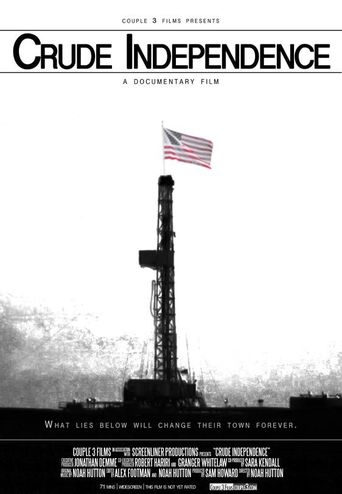jewellrunner
I caught this one at the Kansas City Film Festival, and I almost wish I hadn't. Well, actually, I'm glad I did because this might have been my only chance to catch this movie. Unfortunately, with this being shot in digital, on the big screen the pixelation of the images was very apparent, and might have been better viewed on a television. It's too bad because it's very obvious there is some outstanding photography and cinematography at work here. Hutton takes a page out of Errol Morris' book as this has a lot of the same feel as Vernon, Florida. Where it differs is that there isn't as deep an emotional connection with the people in this movie, though the people are still very much the focus. Towards the end of the movie we meet an old farmer turned millionaire as a result of his oil money, and he is absolutely hilarious. Scenes like that coupled with the many beautiful image (that should have been shot on film!) make this is great movie. I am glad I saw it, despite what I said above.
GaylordQTinkledink
I had the pleasure of seeing this piece at the Oxford Film Festival, where it won best documentary in a very impressive field. Visually, the film is beautiful and striking; sun-soaked shots of wheat fields are often interrupted by fire-breathing steel behemoths, the instruments of the oil industry. Director Noah Hutton certainly has a talented eye. He also has an ability that is much less apparent but nonetheless essential to documentary film-making: he extracts the dramatic material he needs from all of his interviews. This involves making his subjects feel at ease, a process for which the affable Hutton (I shook his hand after the Q & A at the screening) seems to have been born. Moreover, he chooses a diverse cast of characters--such as an ebullient young gas station clerk, drunken roughneck black-gold miners, and some of the metamorphosed nouveau riche--in order to paint a comprehensive picture of a town affected, in its entirety, by our 21st century version of the gold rush: the oil boom. Even more impressive is that Hutton was by far the youngest entry in the festival. I hope and suspect that this movie will achieve distribution, and I expect that "Crude Independence" is the initiation of a successful film-making career for Hutton and company.
JustCuriosity
Crude Independence screened at the SXSW Film Festival in Austin, TX. This film provides a fascinating look at the boom town phenomenon in Stanley, ND where recent oil discoveries have transformed the dying agricultural town. The people of the town are learning to deal with new wealth and new people - mostly roughnecks - who are pouring in. Still, they remain suspicious that it is too good to be true and that the boom won't last. The film makers managed to film just as oil prices were peeking in the summer of 2008. The townspeople were learning to deal with the social consequences such as crime and the arrival of lots of new people. The film makers do a good job of interviewing both the locals and roughnecks and getting to know the town. The film also explores the interesting phenomenon that some of the farmers own the surface rights to their land, but not the underground mineral rights; thus some of the residents are able to becoming wealthy while others are being left behind. The town which has been protected from modernity is now placed in its bright spotlight, which is both good and bad. The film is beautifully and quite objectively made. The film makers allow the townspeople and the roughnecks to speak for themselves without trying to impose their own agenda on them. They don't really touch on the environmental consequences or explore whether or not the continued exploration of fossil fuels is good for the larger society, but that wasn't really their intention. Overall, they highlight that there are few places left to hide from the modern world and the global international economy.
